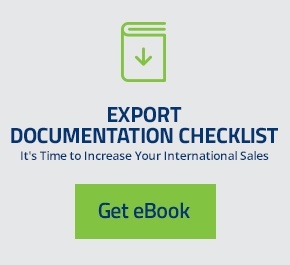What is a Bid Bond?
A bid bond is a type of surety bond that protects a foreign buyer against an exporter’s failure to honor a bid submitted for an export contract—essentially insurance for the importer.
Bid bonds are often required by buyers to award international contracts, particularly when buyers and sellers do not have established relationships. The agreement protects buyers against economic damages and gives them assurance that they will be compensated when sellers win a bidding process, but fail to honor their commitment.
How Do Bid Bonds Work?
Let’s say a foreign buyer is accepting bids for an export contract. They only want serious bidders; the last thing they want is to turn down serious bids for someone who can’t deliver on their offer. Maybe the deal requires a performance bond (see our case study) and they want to make sure the winning bidder can secure the necessary guarantee. So, they decide to require a bid bond as part of the bidding process.
The exporter needs a bank to issue a bid bond on their behalf. The bank issues the bond to the foreign buyer, promising to pay them cash if the exporter fails to enter into an export contract after winning the bidding process. The amount of coverage is generally a percentage of the export contract, depending on a variety of factors, including risk and industry standards.
The bank will charge a price for issuance of the bond, depending on the terms of the deal and their perception of risk involved in guaranteeing the exporter’s commitment. The bank also will require all or some percentage of the bond to be collateralized by cash or other assets.
If the exporter wins the bidding process and fails to honor their bid, the importer may call the bond for financial compensation. If the exporter abides by the agreement or fails to win the project, the bond is retired.
What’s the Challenge for Exporters?
Exporters must put up assets to collateralize bid bonds and win foreign projects. In doing so, they are tying up assets that could otherwise be used to finance the fulfillment of the export contract itself. This creates serious working capital constraints for exporters and impedes their ability to take on new deals.
Additionally, banks are often unwilling to accept export-related assets as collateral because it may be difficult to collect inventory or accounts receivable outside of U.S. jurisdiction.
How Can The Export-Import Bank (EXIM) Help Exporters Finance Bid Bonds?
EXIM’s Working Capital Loan Guarantees equip exporters to meet their foreign buyers’ desire for the protection of a bid bond. EXIM works directly with an exporter’s lender, guaranteeing a facility to secure a standby letter of credit that functions as a bid guarantee. This can be the difference between an exporter either making or missing out on a sale.
EXIM’s guarantee is essentially insurance for an exporter’s lender, backing 90 percent of the facility to the exporter, allowing export-related accounts receivable, inventory and even work-in-process to be pledged as collateral. This empowers exporters to provide foreign buyers the assurance they require, without tying up much needed cash in the process.
Want to Learn More About EXIM’s Working Capital Loan Guarantees
Download our FREE E-Book, “An Exporter’s Guide to Working Capital Loan Guarantees”.
